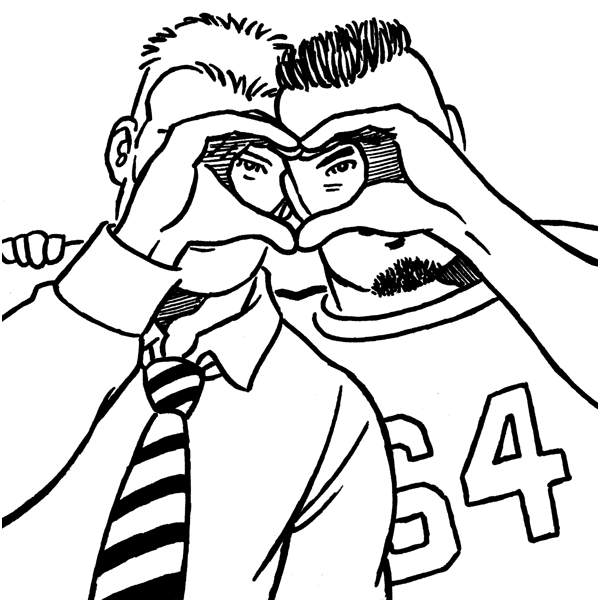TODAY'S GAY WISDOM
Harry Hay…The Mattachine Society
In 1948, as
Senator Joseph McCarthy railed against homosexuals in the State
Department, Harry Hay, working on the Henry Wallace presidential
campaign, wrote a startling document, declaring homosexuals an oppressed
minority. While the idea is widely accepted today, at the time the
notion of homosexuals as a minority was considered absurd. But it was
this key concept that would eventually bring the Gay and Lesbian rights
movement together.
Harry's platform
for the Wallace campaign was never voted on, but he remained determined
to organize homosexuals to fight for their equal rights. Two years
later, he met Rudi Gernreich (who would later go on to become a noted
fashion designer, most famously of the “topless” bathing suit for women)
and together they canvassed beaches in the Los Angeles area known as
homosexual gathering places, inviting people to a discussion group about
the just released Kinsey Report. In November 1950, Harry showed the
plank written for the Wallace campaign to Bob Hull, a student in his
Southern California Labor School class. Bob shared the document with two
of his friends, Chuck Rowland and Dale Jennings, and on November 11,
1950, the five met for the first time to discuss forming a political
group that would later become the Mattachine Society. All of the
founding members identified themselves as leftist.
Given the fearful
political climate, Mattachine Society meetings often took place in
secret with members using aliases. Like the Communist Party, the
organization was organized in a cell structure that was non-centralized
so that should a confiscation of records occur only limited information
would be available to the authorities. In 1951 the group of five was
joined by two other members, Konrad Stevens and James Gruber, and
together they created the Mattachine Society Missions and Purposes
statement and held their first conference. Given the risk that
homosexuals presented to the Communist Party, Hay resigned from the
Party in that same year.
Over the course
of the next two years, the Mattachine Society worked to organize and
increase regional chapters throughout most of Southern California, but
it was not until the arrest of member Dale Jennings on police entrapment
charges that the Mattachine Society took on its first political battle.
Police entrapment was a common form of harassment against homosexuals
during that period. Suspects' names were printed in the newspapers,
which caused many to lose their jobs and become estranged from their
families. By standing up to defend Jennings, the Mattachine Society not
only rose to the defense of one of their members, but also took on the
notorious Los Angeles Police Department for its pattern and practice of
homosexual harassment.
Jennings charges
were dismissed due to the judge catching the arresting officers in a
lie. This victory was not reported in the papers, but the Mattachine
Society took it upon themselves to publicize the event through flyers
distributed throughout Los Angeles to areas where homosexuals met.
The result was a
swelling of attendance at Mattachine Society meetings. But the
newcomers, nervous about the founders ties to leftist political causes,
called for a statewide convention. On the last day of the conference the
original Mattachine founders (Hay, Rowland, Hull, Jennings, Stevens,
Gruber) resigned due to political differences with the new membership.
The Mattachine
Society grew into a national movement, and in conjunction with a Lesbian
organization, the Daughters of Bilitis, became the above ground civil
rights organizations for Gays and Lesbians until the Stonewall riot in
1969. The final Mattachine Society office closed in the 1980s.
White Crane gratefully acknowledges the assistance of historian and Hay biographer, Stuart Timmons.












